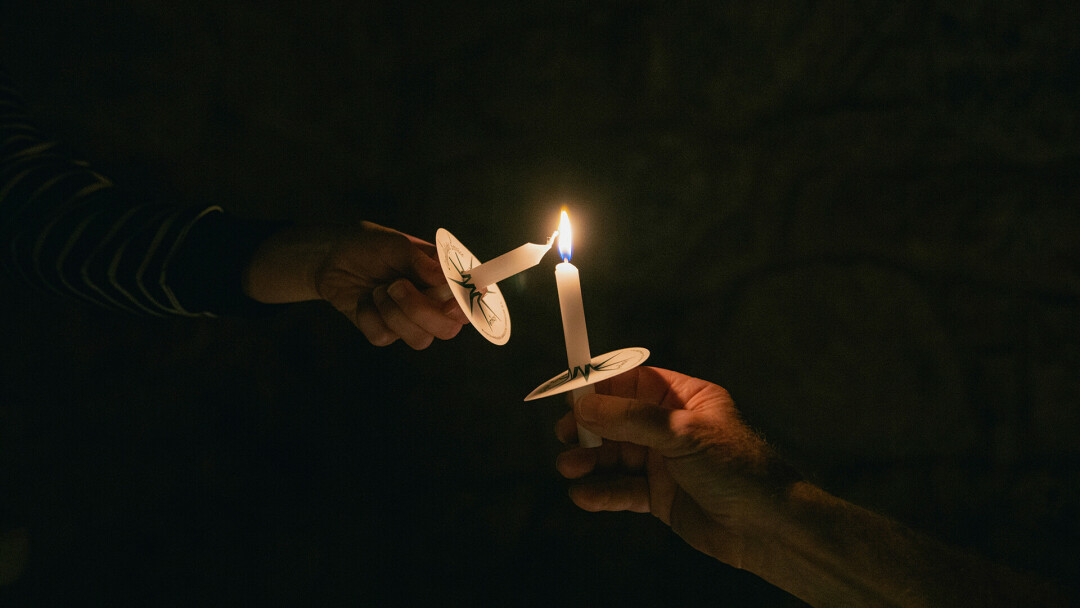SOAPBOX: Night Light
Electric lights may brighten our winter nights, but do they darken our interior lives?

The black of the night is rich with a velvety sensuality if you only let it be. When it is punctured by Christmas lights on trees, yards, and houses, the sensuality adjusts to polychromatic. What would our ancestors of 150 years ago and more have made of Christmas lights at night? Their experience with the dark is only altered by flame and moonlight. It would have been so beautiful, so astonishing.
But then, so much of what lights up our night would have been just as beautiful – and just as astonishing. The colors of a traffic light, the glow of automobile brake lights, the colored brightness of a gas station. In this lit-up darkness, there might have been nothing so special about Christmas lights.
The limited illumination of the night, provided by fire and the moon, created a world so different from our own where nighttime and daytime activities need not vary much. For our ancestors, activity stopped or at least became limited and sedentary. There might be hand work that could be done by touch or in deep shadow. With no light switch to flip, their brains had not yet atrophied to nighttime movement skills. They surely remembered where obstacles were and they did a better job of interpreting limited visual clues than we do.
Socrates viewed literacy as an unwelcome development, fearing the dulling of memory and the degeneration of communication. Who is to argue with him? What would he have made of the electric light bulb?
They were tuned into the phases of the moon and made use of the moon when it was full. They contemplated the stars and created images from their positions that we generally fail to make out. Stories told, songs sung, with only a hearth fire or candle for light. The eyes took a rest; ears and touch took over the lives of our ancestors at the end of the day.
The preliterate ancients could recite many hours of epic sagas. The Iliad and The Odyssey were at first passed on orally. The same was true of others. The Serbs, the Finns, the Icelanders, and doubtless a multitude of others had their sagas, all recited from memory by bards who were the source of nighttime entertainment, recounting tales of heroic and fantastic adventure. Their brains, uncluttered by other stimuli, dedicated to the extended telling of their heroes’ exploits. Those tales were written down and the skill evaporated. Socrates viewed literacy as an unwelcome development, fearing the dulling of memory and the degeneration of communication. Who is to argue with him? What would he have made of the electric light bulb?
We defeat the darkness of night with thousands, nay, tens of thousands of nighttime lights. Our ancestors flowed with the night, adjusted, rested, listened, and let the darkness govern their nighttime lives. Could it be that this is what we are meant to do?






















